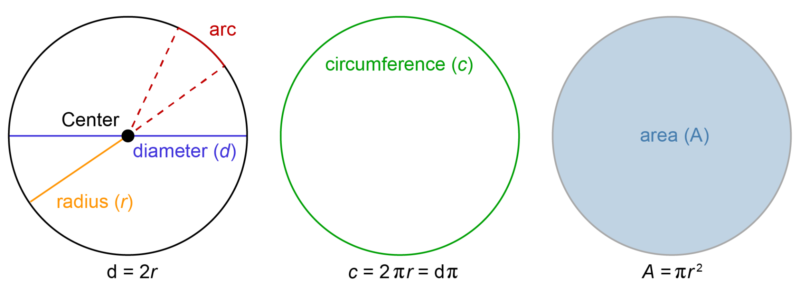How Hard is the CTC?
The difficulty of the CTC varies for individuals depending on their past academic and professional experiences. You can get a sense of an exam’s overall difficulty by looking at the passing rates from previous years.
In general, over 75% of people pass the CBEST reading and mathematics sections on the first try. The writing test is a little harder, with an average first-time pass rate of 72%. More than half of CSET test-takers also pass on the first time, with subject pass rates ranging from 52% to 90%.
The NES Assessment of Professional Knowledge has very high pass rates: 96% for Elementary and 97% for Secondary between 2014 and 2020. First-time pass rates on RICA are about 62%. CTEL pass rates for first-time test-takers over the last 10 years range from 48% to 56%. This number increases to about 75% when test retakes are also included.
How Do You Pass the CTC?
Follow these five steps to pass your CTC exam:

- Learn about the test
Once you determine which CTC tests you need to take, you can start learning about the specific tests. Learning about your upcoming exam is the easiest way to decrease test anxiety and improve your score. Important test information includes scoring, structure, time limits, and the types of questions asked. It is also useful to learn about the testing center rules and regulations. Information for all exams can be found on the CTC Educator Credentialing Assessments website.Need more tips on reducing test anxiety and improving your test score? Dr. Kristy Mulkey has the answers you need and more here.
- Make a study plan
An effective study plan should include test information, study guides, and practice problems. Allow enough time to fully review each test competency before test day. Set achievable goals and commit a dedicated block of time three to five times a week to review your study guide and work through practice problems.
- Follow your study plan
The best way to pass the CTC is by making a study plan and sticking to it! Remember that shorter periods of effective studying are better than longer periods of distracted studying. It’s okay to adjust your study plan as you go. It’s common to have your schedule change or to find that some material takes longer to review than originally planned.
- Make a test day routine
Plan a test day routine ahead of time so that on test day you can be fully focused. CTC exams are physically tough, so make sure to dress comfortably and bring layers in case the testing room is warm or chilly. Use the test day guide on the CTC website to help make a plan. It is good practice to double-check the appointment time and test center rules before leaving home.
- Take the test
Congratulations, you passed!
Where Do You Find Resources for the CTC?
You can find resources for the CTC online at 240 Tutoring and on the CTC Educator Credentialing Assessments website.
What are the Best Resources to Use for the CTC?
The best resources to use for the CTC will include test information, study material, and practice problems. Knowing test details, including scoring, question types, and topic breakdowns, will help you build an effective study plan. Study material refers to study guides or raw material from lectures and textbooks. Practice problems and full-length practice tests should be modeled after the questions that will be asked on CTC. 240 Tutoring has these resources and more all in one place. There are 240 Tutoring resources that are specifically designed for each CTC exam.
Where Do You Find Study Guides for the CTC?
You can find comprehensive study guides for the CTC at 240 Tutoring. Here you have access to free Ultimate Guides and practice tests. 240 Tutoring Ultimate Guides break down each test into the key topics and provide information that is engaging, thorough, and relevant to the exam.
You can also make your own study guides by using the key topics from the Ultimate Guides or the CTC website as an outline and researching the information from lectures, textbooks, and other scholarly sources.
How Do You Use Study Guides to Study for the CTC?
Study guides are an effective and efficient way to study for the CTC. Study guides provide a summary of key concepts, terms, and important information that is most likely to appear on the exam. Visual aids like charts, illustrations, and tables help to break up the text, show comparisons, and represent complex systems. Here’s an example:

As you read a study guide, note any new information, questions, or difficult concepts that you find. Then do targeted searches of academic resources to explore further and fill in the blanks. Once you feel that you fully grasp the information provided for a topic, move on to the next one.
It is good practice to review each study guide one or two more times before your exam. In your second review, answer any new questions that come up and work on committing the information to long-term memory.
How Do You Study for the CTC?
Study for the CTC by following your study plan. A study plan includes all the material that you need to study before the exam and a timeline for when you will complete it. Study plans should be achievable, flexible, and productive.
An achievable plan breaks up big tasks into smaller goals that help you stay motivated. Create a schedule that you can maintain for a long period of time, and make sure to leave enough time for your obligations outside of studying. Trying to accomplish too much in too little time is not a good strategy for success.
Flexible plans allow you to make changes as you go. For instance, you may start reading the physics topics for an exam and realize that it will take you longer than you budgeted to fully understand the material. Depending on your schedule, you might simply add on more time for physics, or you might have to take some time from another section.
Finally, a productive plan means that you have a system for making progress. Reviewing study guides is a great way to stay productive, because it gives you a set amount of information to review before moving on. An example of an unproductive plan would be reading a science textbook for an hour. While you may learn important information, it is not targeted for the CTC and you won’t know when you should move on to the next topic.
If you’ve fallen behind on your study plan and are worried you won’t have time to finish before your exam date, learn how to effectively cram for your test in this video!
When Should You Study for the CTC?
When you should study for the CTC will vary depending on your academic and professional history and which exam you are taking. For exams with multiple-choice subsections, plan to start at least two to three months before the test date. This will leave you enough time to learn about the test, build a study plan, and complete it. Once you start studying, you may find that some topics require less time and other topics require more time to review.
How Much Should You Study for the CTC?
Remember that shorter periods of effective studying are better than long periods of distracted studying, and how much you should study for the CTC will depend on your individual skills and knowledge. Simply follow your study plan! Review each topic on the upcoming test with a study guide that explains key concepts and new terms. Once you fully understand a topic, move on to the next one.
It is good practice to return to old study guides for quick reviews every few days. Repetition over a longer time period will help your brain retain the information. Make sure that your study plan includes enough time to answer practice questions and take one or two full-length practice tests before test day.
Now you are ready to tackle your CTC exam! Get started with a 240 study guide.





